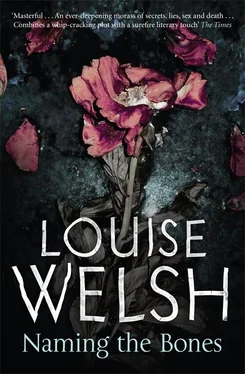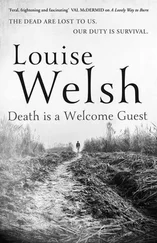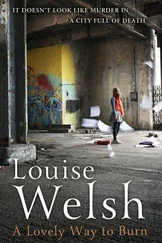‘George Meikle is our head bookfinder.’
Murray wanted to tell the bookfinder to call him by his first name, but the action seemed too awkward. Instead he indicated the request forms in his hand.
‘I was just heading in your direction.’
Meikle’s face remained dour.
‘I’ll take you along to the desk then.’
George’s surliness was at odds with his offer and Murray wondered if he was grabbing the opportunity to escape the weight of Mr Moffat’s cheerfulness.
‘Excellent.’ The librarian couldn’t have looked happier had he introduced Lord Byron to Percy Shelley. ‘Still, it’s a pity we don’t have more for you, Dr Watson. I often wish some poets had been more assiduous with their legacy.’
Meikle made a harrumphing noise that might have been a laugh or impatience.
‘Some of them are over-assiduous.’
‘George has a point.’ Mr Moffat lowered his voice as if he were about to tell a risqué joke. ‘We’ve been gifted signed notes to the milkman, but your man. . one slim volume and a cardboard box of papers. Tragic. It’s going to make your job pretty difficult.’
‘There’s more than you might think, references in other texts, letters and the like, and I’m hoping more will turn up once I start talking to people who knew him.’
‘I’m a great believer in optimism.’ Mr Moffat was already turning away. ‘And there’s always George. He’ll help you out where he can.’
Murray groped for some way of saying he didn’t need any help beyond the room already provided. But he was already looking at the broad back of Mr Moffat’s blue suit as he headed away from him, along the corridor to his office.
George snorted with the same mixture of amusement and impatience he’d shown earlier.
‘This way.’
He started down the hallway in the other direction and Murray followed him, too polite to let on that he already knew his way around. He couldn’t think of anything to say. It was like this sometimes when he had been deep in work, as if his mind stayed trapped in the wrong mode, the best part of him caught in the pages he was carrying.
Lunan had been trying to write a sci-fi novel. Murray smiled at the irony. He’d been hoping to uncover lost verses by a neglected poet and instead had chanced upon notes for a pot-boiler. Maybe Lunan had been bored, or perhaps he’d decided to fight penury with pulp fiction. The notes for the book had been sketchy, but the beginnings of the plot were unoriginal, a small colony of people trying to pick their way through a post-apocalyptic landscape. Murray supposed the setting might have been inspired by the isolation of Archie’s last home.
George broke the silence, jerking Murray back into the moment and the empty corridor that smelled of books and learning.
‘So have all the big boys been covered then?’
It was a question he’d been asked before, most notably by Fergus Baine, Murray’s head of department when he’d submitted his request for a sabbatical. He’d pulled out the stops then, explaining his perspective on the poet’s neglected place in the canon, how his story crossed boundaries not simply of literary style but of a country divided by geography, industry and class. He’d dampened his love of Lunan’s poetry from his voice and presented an argument based on scholarship and fact. Murray had been as passionate as a commission-only salesman about his product, believing every word of his own spiel, but the hours spent in the small room with Archie’s slim legacy had left him dispirited. As if the salesman had opened his sample case in the privacy of a hotel room and been confronted with the flaws in his merchandise. He felt a sudden stab of anger. Who was this guy, anyway? Stalwart of the stacks, a glorified janitor with his old man’s cardigan and wilted features.
‘I don’t get you.’
‘Archie Lunan. I’d have thought you’d have better folk than him to spend your time on.’
‘I still don’t get you.’
George turned his face towards Murray, his expression unreadable.
‘He wasn’t much of anything, was he? Not much of a poet and not much of a man, as far as I could tell.’
‘And you’d be the one to judge?’
‘I’m not a professor of English literature.’
Murray doubted his promotion had been an accident and didn’t bother to correct it. He remembered his joke of the night before.
‘But you know pishy poetry when you see it?’
‘I know a big poser when I see one.’
The words could have been directed towards Murray, Lunan or both. The corridor stretched ahead of them. He didn’t need the guidance of this misery. He knew where he wanted to go, could put on some speed, step quickly ahead and leave the old bastard to ferment in his ignorance. Instead he kept his voice cold and asked, ‘So did you see a lot of Lunan?’
‘You could see Archie Lunan propping up the wall of an Edinburgh pub any night of the week in the seventies.’
‘And you were out in the street with your nose pressed to the Christian side of the window when you saw him, I suppose?’
George Meikle’s laugh was harsh.
‘No, I wasn’t. But it’s not me we’re talking about, is it?
Murray felt weary with the weight of defending Lunan, a man who he suspected was probably as big an arsehole as George was implying. But it wasn’t the man he needed to defend. He said, ‘Archie Lunan may not have been Scotland’s favourite son, but he produced one of the most remarkable and most neglected collections of poetry ever to come out of this country.’
They had reached the foyer now. George turned to face him.
‘And you’re going to right that?’
‘I’m going to try.’
The older man’s voice was sweet with sarcasm.
‘A big thick book about a wee, skinny poet and his one, even skinnier volume?’
‘If I can.’
George shook his head.
‘And the greater part of it about how he went.’
‘It’ll be a part of it, but not the main part. I’m writing for the Edinburgh University Press, not the News of the World .’
‘Aye, that’s what Mr Moffat said.’ George hesitated, as if making his mind up about something. ‘You asked where I was when I spied Lunan in the pub. Half the time I was sitting opposite him, the other half I was sitting on the bench beside him.’
‘You were friends?’
‘Drinking pals, for a while.’ Meikle took a deep breath. ‘Why do you think Tuffet was bringing me along to meet you? You could find your own way to the request desk fine. He thought I might be able to fill in some gaps.’
‘And can you?’
‘I doubt it. All we ever did was hang about pubs talking pishy poetry. The kind of thing you no doubt get paid good money for.’
Murray grinned against the unfairness of George Meikle’s first-hand contact with Lunan.
‘I’d like to hear your memories of Archie, they could be a big help. Maybe you’d let me buy you a drink?’
‘I don’t drink.’
He wondered if anyone had conducted a study into the link between being teetotal and being a depressing bastard. But then the old man gave his first genuine smile.
‘You can stand me a coffee in the Elephant House when I knock off.’
Murray bought a ham and tomato sandwich from the newsagents opposite the library and ate it standing in the street. The bread was soggy, the tomato slick against the silvered meat. He forced half down then consigned the remainder and its plastic box to a bin. He’d turned his mobile off when he’d entered the library that morning, now he switched it on and checked for messages. There were two. He pressed the menu button and brought up Calls Missed. Jack had rung once, Lyn twice. He killed the phone and went back into the library. He had a lot of work to do before he met George Meikle.
Читать дальше












